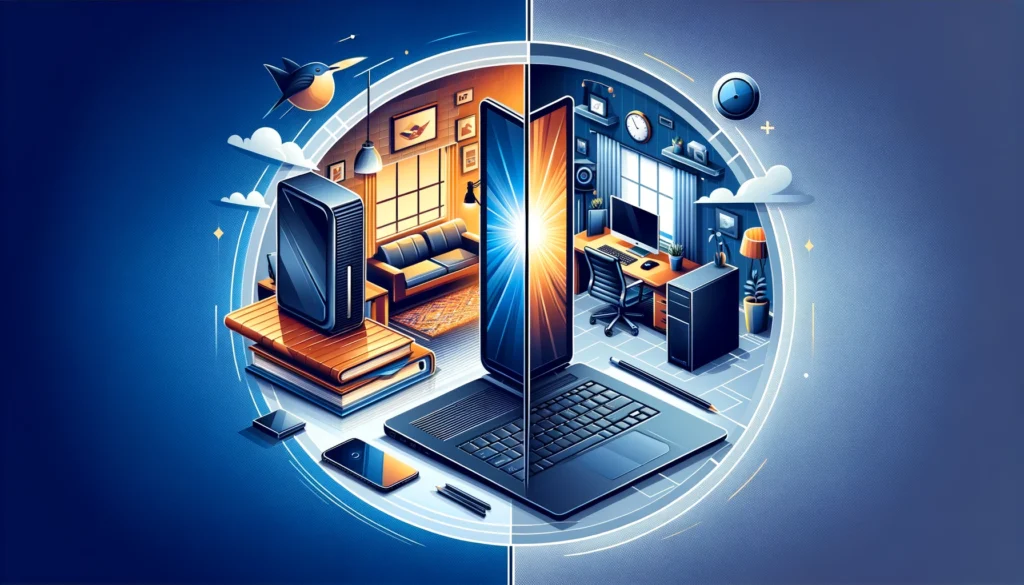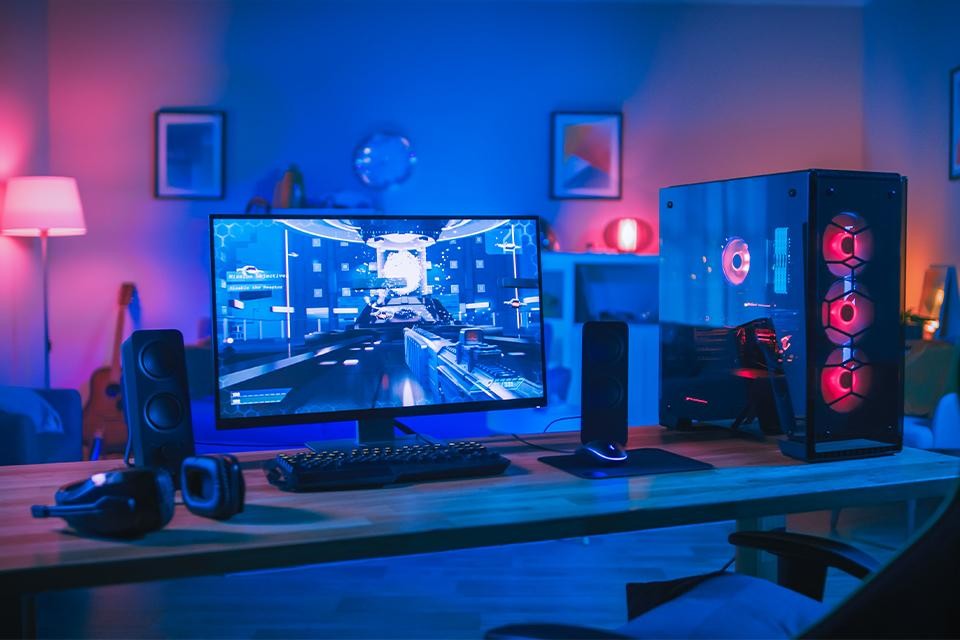In today’s fast-paced digital world, having the right computer can significantly enhance productivity, entertainment, and daily life. However, with the vast array of options, deciding between a desktop and a laptop can take time and effort. This guide aims to demystify the process, helping you find the perfect fit for your needs, lifestyle, and work requirements.
Understanding The Basics
At their core, desktops and laptops serve the same purpose – computing. Yet, they cater to different mobility, performance, and usability preferences.
Desktop Computers: The Powerhouses
Desktops are known for their high performance and upgradability. With more space for components, they typically offer superior processing power and graphics capabilities, making them ideal for gaming, video editing, and heavy multitasking.
- Pros: Higher performance, more accessible to upgrade, generally cost less for more power.
- Cons: It is not portable and requires more space.
Laptop Choices: Portability Meets Convenience
Laptops offer the ultimate convenience of mobility. Designed for on-the-go use, they integrate the computer, keyboard, mouse, and speakers into one compact device.
- Pros: Portable, space-saving, integrated components.
- Cons: Usually more expensive for equivalent performance, more complex to upgrade.
Performance Vs. Mobility
When choosing, consider whether performance or mobility is more important for your daily tasks.
- A desktop might be the way to go if you require the best possible performance for tasks like 3D modeling or high-end gaming.
- If you need your computer for presentations, meetings, or work in different locations, the mobility of a laptop is unmatched.
Work From Home Vs. On The Go
Your work environment plays a crucial role in your decision. A home office setup benefits more from a desktop’s power and comfort, while those constantly on the move or with limited space prefer the flexibility of a laptop.
Making Your Tech Decisions
When deciding between a desktop and a laptop, consider your current needs and future requirements. Technology evolves rapidly, and your choice should accommodate today’s tasks and tomorrow’s challenges.
Conclusion
The choice between a desktop and a laptop ultimately depends on your needs, lifestyle, and preferences. Whether it’s the unparalleled performance of desktop computers or the convenience and portability of laptops, ensure your decision aligns with your daily requirements and long-term goals.
Remember, the perfect fit is out there. With the correct information and a clear understanding of your needs, you’ll find the ideal computer that meets and exceeds your expectations.
FAQ: Desktops Vs. Laptops
1. Can I upgrade a laptop as easily as a desktop?
A: Generally, laptops are more complicated to upgrade than desktops. While you can often increase RAM and swap out the hard drive in laptops, upgrading the CPU or GPU is much more difficult, if possible, in most models.
2. Are desktops more reliable than laptops?
A: Desktops have a longer lifespan and are considered more reliable over time, mainly because they’re less prone to overheating and have easier-to-replace or upgrade parts.
3. Do laptops use more power than desktops?
A: Laptops are designed to be energy-efficient to conserve battery life, so they typically use less power than desktops connected to a constant power source.
4. Can a laptop be as powerful as a desktop?
A: High-end laptops can match the performance of mid-range desktops, but the most potent desktops still outperform due to their ability to house more robust hardware.
5. What is the main advantage of owning a desktop?
A: The main advantage of a desktop is its performance and upgradeability. Desktops usually offer more power for a lower price than laptops and can be easily upgraded to enhance performance or extend lifespan.
6. Is a laptop or a desktop better for gaming?
A: While gaming laptops have come a long way, serious gamers generally prefer desktops for their superior processing power, better heat management, and ease of upgrading components.
7. How do I decide between a laptop and a desktop for college?
A: Consider your needs and lifestyle. If you anticipate needing to work in various locations or attend classes in person, a laptop offers the portability you need. A desktop might be a better fit if most of your work is done in a single location and you require more intensive computing power.
8. Are desktops becoming obsolete?
A: Not at all. Despite the rise in laptop popularity due to their portability, desktops remain relevant for their superior performance, especially in gaming, professional graphic design, and video editing.
9. What should I consider when buying a laptop to ensure it lasts?
A: Look for laptops with solid build quality, good heat management, a reputable brand, and specs that exceed your current needs to accommodate future software updates and needs.
10. How much should I expect to spend on a good-quality desktop or laptop?
A: The price can vary widely depending on your needs. A solid mid-range laptop can start at around $700, while a good quality desktop (without peripherals) might start at around the same price but offer more power. High-end models and gaming-specific machines can quickly go into the thousands.
Also read – Choosing the Right Computer for Your Needs: A Buyer’s Guide



